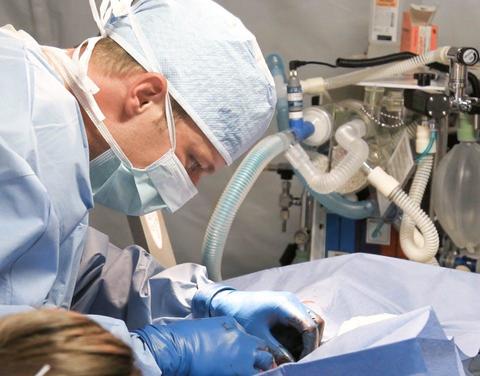Technology has been steadily transforming the practice of medicine, but the field of anesthesiology has not quite kept pace. Documentation is still largely a pen-and-paper enterprise, and that's costing practices time and efficiency, affecting the bottom line.
As more and more practices are ditching pen and paper and moving to electronic health records, however, vendors such as athenahealth, MedEvolve Practice Management, Mercury Medical and Recordation are offering software platforms or cloud-based services for anesthesiologists.
And even some of the former tech skeptics are now admitting that the tools help their practices operate at new levels of efficiently, reduce costs, enable them to more easily meet MACRA and MIPS criteria and even spend more time concentrating on patients.
Enabling vigilance
James Faust, MD, a Southbridge, Massachusetts anesthesiologist affiliated with Harrington Memorial Hospital, said that despite the advantages of moving to an automated, paperless system, there was some initial resistance in the field.
"When you're with a patient you've got to be vigilant," said Faust. "A lot of people were worried that if we were married to a keyboard, the vigilance would decrease. That was one of the concerns. The second was medical and legal concerns. If you have an automated blood pressure cup and the doctor leans up against it, it gives a false reading. A lot of people were concerned that if everything is automatically recorded, from a legal and medical perspective, that would be a risk."
Faust, who has been utilizing Recordation since April, said the concerns were unfounded.
"Neither of those things have panned out, at least in my experience," he said.
Since implementing the platform, Faust said his practice has been operating more quickly and efficiently. And a nice benefit to not hurriedly writing everything down is that the information collected is perfectly legible -- which wasn't always the case in the past.
[...]
"Unless you have a process that gives you a baseline, you can't make any steps to improve your process," said Keene. "Without that information, most surgical centers and ambulatory centers are at a disadvantage. We're taking that information and making it really easy for our practitioners."
Source: Healthcare IT News (View full article)
Posted by Dan Corcoran on December 5, 2017 07:11 AM



Post a comment